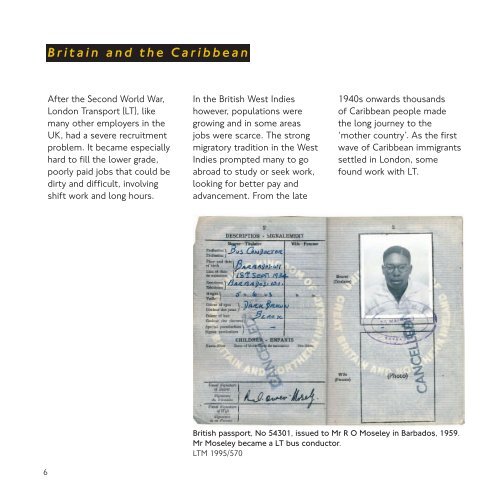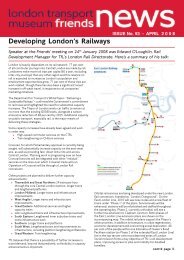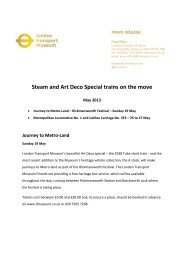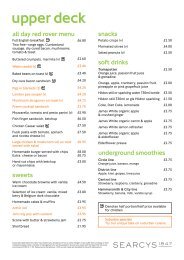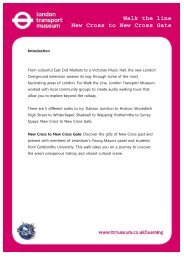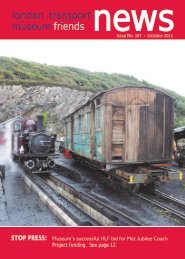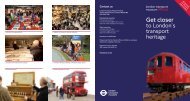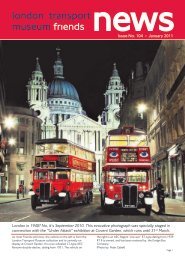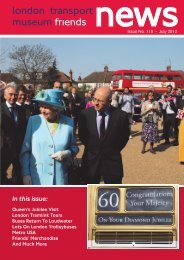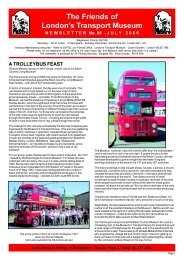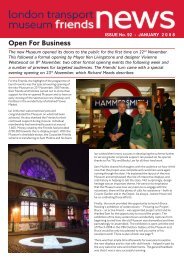Generations: celebrating 50 years of Caribbean recruitment
Generations: celebrating 50 years of Caribbean recruitment
Generations: celebrating 50 years of Caribbean recruitment
You also want an ePaper? Increase the reach of your titles
YUMPU automatically turns print PDFs into web optimized ePapers that Google loves.
6<br />
Britain and the <strong>Caribbean</strong><br />
After the Second World War,<br />
London Transport (LT), like<br />
many other employers in the<br />
UK, had a severe <strong>recruitment</strong><br />
problem. It became especially<br />
hard to fill the lower grade,<br />
poorly paid jobs that could be<br />
dirty and difficult, involving<br />
shift work and long hours.<br />
In the British West Indies<br />
however, populations were<br />
growing and in some areas<br />
jobs were scarce. The strong<br />
migratory tradition in the West<br />
Indies prompted many to go<br />
abroad to study or seek work,<br />
looking for better pay and<br />
advancement. From the late<br />
1940s onwards thousands<br />
<strong>of</strong> <strong>Caribbean</strong> people made<br />
the long journey to the<br />
‘mother country’. As the first<br />
wave <strong>of</strong> <strong>Caribbean</strong> immigrants<br />
settled in London, some<br />
found work with LT.<br />
British passport, No 54301, issued to Mr R O Moseley in Barbados, 1959.<br />
Mr Moseley became a LT bus conductor.<br />
LTM 1995/570<br />
Advertisement for cheap passage to England. Jamaica, 19<strong>50</strong>s<br />
LTM 2006/15852<br />
7


